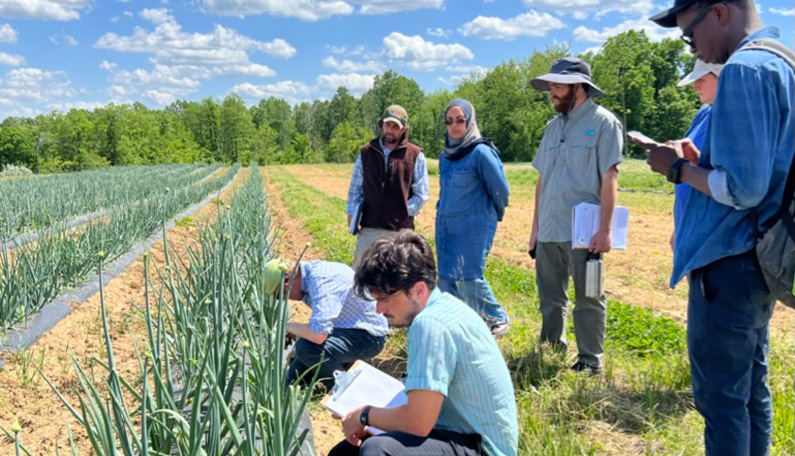

Introduction to Careers in Research, Extension, and Education
A career in organic research, extension, and/or education offers a meaningful path for individuals passionate about advancing organic practices through scientific discovery, supporting farmers with science-backed research, and contributing to a more resilient food system. Professionals in this field play a vital part in addressing pressing challenges such as soil health degradation, pest management, crop resilience, climate change, and other essential topics that drive innovation in organic farming. Whether conducting field trials, translating research into practical guidance, or educating the next generation of farmers and scientists, professionals in this field help bridge the gap between science and practice.
This career path is ideal for individuals who are organized, curious, solution-oriented, and committed to making an impact on food and farming enterprises. Those with a passion for sustainable food systems, hands-on problem-solving, and collaborating with farmers, researchers, and policymakers will find rewarding and impactful opportunities in this field.
Careers in organic research can be found in a variety of settings, from academic institutions, local, regional and federal government, nonprofit organizations, and private organizations. Examples of employers include:
Careers in organic research are diverse, encompassing various specializations that contribute to a deeper understanding of sustainable agriculture.
Hear from professionals working in organic research, sharing their experiences on how their work impacts organic farming and environmental sustainability. Learn about their motivations, the research challenges they face, and how they are making a difference in organic agriculture.
For those interested in careers in organic research, extension, or education, it is important to familiarize yourself with the various types of organizations that hire people into the roles that you find interesting. Find a mentor by reaching out to faculty or professionals who already are in careers that you seek.
The Organic Farming Research Foundation compiled a list of Land Grant institutions that offer organic programs in 2019. While there have been changes to some universities, much of this information is still relevant: Organic Land Grant Assessment.
Positions for federal government jobs are posted on USA Jobs: https://www.usajobs.gov/
State and local governments often post their positions on Government Jobs: https://www.governmentjobs.com/
Also visit the website for various departments of agriculture or natural resources in each county, city, or state you are interested in working in and search their job or career postings.
You can find a comprehensive list of the US State Departments of Agriculture here: https://www.nasda.org/about-nasda/state-agriculture-departments/
Some county examples include the Resource Conservation District of Monterey County https://www.rcdmonterey.org/ and the Orleans County Natural Resource Conservation District https://www.orleanscountynrcd.org/
Most states have organic farming associations, such as the Organic Association of Kentucky, Northeast Organic Farming Association, and Georgia Organics, Florida Organic Association, Marbleseed, and the Ohio Ecological Food and Farm Association. Some organic certifying agencies have separate entities that offer technical assistance to farmers, such as Oregon Tilth and California Certified Organic Farms.